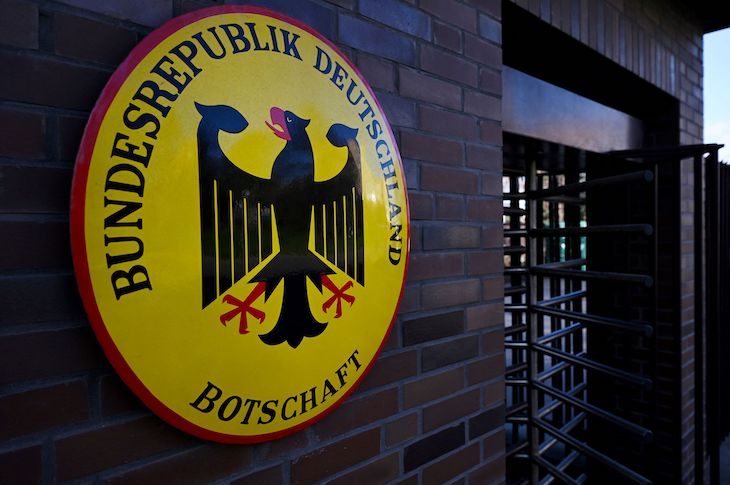Yet another suspected Russian spy has been arrested in Germany — the third such case in recent months.
The suspect — named only as Thomas H. by the German media for legal reasons — is an employee of the department of Germany’s army, the Bundeswehr, responsible for procuring defense technology.
He is said to have approached the Russian embassy in Berlin and its consulate in Bonn in May and offered to provide secrets connected to his work. The arrest follows similar cases late last year when an agent of Germany’s foreign intelligence service, the BND, was arrested and accused of betraying secrets to the Russians, and an officer in the Bundeswehr reserve was put on probation for supplying information to Moscow for years.
The latest arrest comes hard on the heels of two former heads of the BND, August Hanning and Gerhard Schindler, writing to the Bild newspaper at the weekend complaining that the agency was “hobbled and toothless” because of bureaucratic oversight and interference. The former spymasters revealed that no fewer than seven political and legal committees had to approve and supervise their work, forcing them to rely on information from friendly foreign intelligence agencies rather than their own work.
This seems to confirm that the arrest of the spies last year came because of a tip-off from an allied agency rather than Germany’s own counter-espionage efforts.
As we know from the Cold War and the novels of John le Carré, Germany has long been on the front line of the spy wars and Germany was uniquely vulnerable to spies from the East. In the 1970s Günter Guillaume, an aide to Chancellor Willy Brandt, brought his boss down when he was exposed as a long-term communist spy. The Russians and East Germans trained handsome agents to target lonely and loveless spinster secretaries working for the Bonn government and seduce them into espionage.
It is not hard to discern why Germany is so prone to penetration by Russian spies: it is yet another legacy of the country’s dark past. The totalitarian experience of Nazi dictatorship so inoculated the country against all aspects of a police state, that suspicion of domestic spy agencies became endemic.
The country that produced the Gestapo and SS has always had a healthy distrust of spies — hence the excessive checks and balances hampering their own secret agents today. Coupled with this is Germany’s ambivalent relationship with Russia, including German guilt arising from the shadows cast by World War Two and the subsequent division of the country until 1989.
These factors are combining to make Germany a weak link in the Western world’s defense against Russian aggression and espionage that has followed Putin’s invasion of Ukraine.
This article was originally published on The Spectator’s UK website.

























